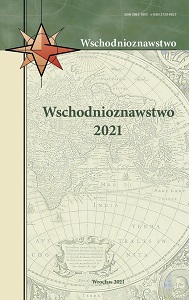Коммуникация миротворческой миссии на востоке Украины
Communication of the peacekeeping mission in eastern Ukraine
Author(s): Iryna BohinskaSubject(s): International relations/trade, Peace and Conflict Studies, Russian Aggression against Ukraine
Published by: Wydawnictwo Uniwersytetu Jagiellońskiego
Keywords: peacekeeping mission; communication; Ukraine; Russian Federation; UN; Minsk agreements;
Summary/Abstract: The article examines the conflict over the idea UN peacekeeping mission in eastern Ukraine between Ukraine and Russian Federation. The analysis of the conflict is based on a critical approach to the official narratives which is containing references to the UN peacekeepers in 2015‑2021. It was established that the first time the idea UN peacekeeping mission appeared in the Ukrainian political discourse immediately after the signing of the second part of the Minsk agreements (Minsk‑2). It found itself in the center of international discourse after Russian President V. Putin initiated the submission of the draft resolution to the UN Security Council. The Russian approach to the peacekeeping mission was formulated in a strict connection with the implementation of the Minsk agreements and did not allow their interpretation. Generally, the Russians’ Federation („defensive concept”) and Ukraines’ („broad mandate”) approaches are developing and adapting the concept of modern peacekeeping to the interests of the conflict parties. Russian‑Ukrainian narratives are the basis for an in‑depth understanding of the conflict nature and possible ways to resolving. The using of propaganda tools to promote multidirectional approaches to UN peacekeepers has taken the conflict to a higher level. The analysis of the communications the peacekeeping mission includes negotiation formats which the issue was discussed. Such negotiating platforms were the Normandy format, the Munich Security Conference, the UN General Assembly, the Surkov‑Volker track etc. The UN Security Council did not become an additional channel of communication, because it was not possible to coordinate and bring together the Ukraine’s position and the Russians’ Federation ones. Attempts to agree on a peacekeeping mission within the framework of the implementation of the Minsk agreements created a negotiation deadlock and the exclusion of this item from the agenda of international negotiations. The article focuses on the factor of formation the public support for the scenario of conflict settlement which is based on the UN. The issue was investigated on opinion polls and an arbitrary selection of plots, which are formed the evidence base for assessing the influence the civil society in decision‑making in Ukraine. At the same time, it shows the humanitarian aspects that would have the potential to influence the conflict settlement processes in Donbass.
Journal: Wschodnioznawstwo
- Issue Year: 2021
- Issue No: 15
- Page Range: 31-53
- Page Count: 23
- Language: Russian

